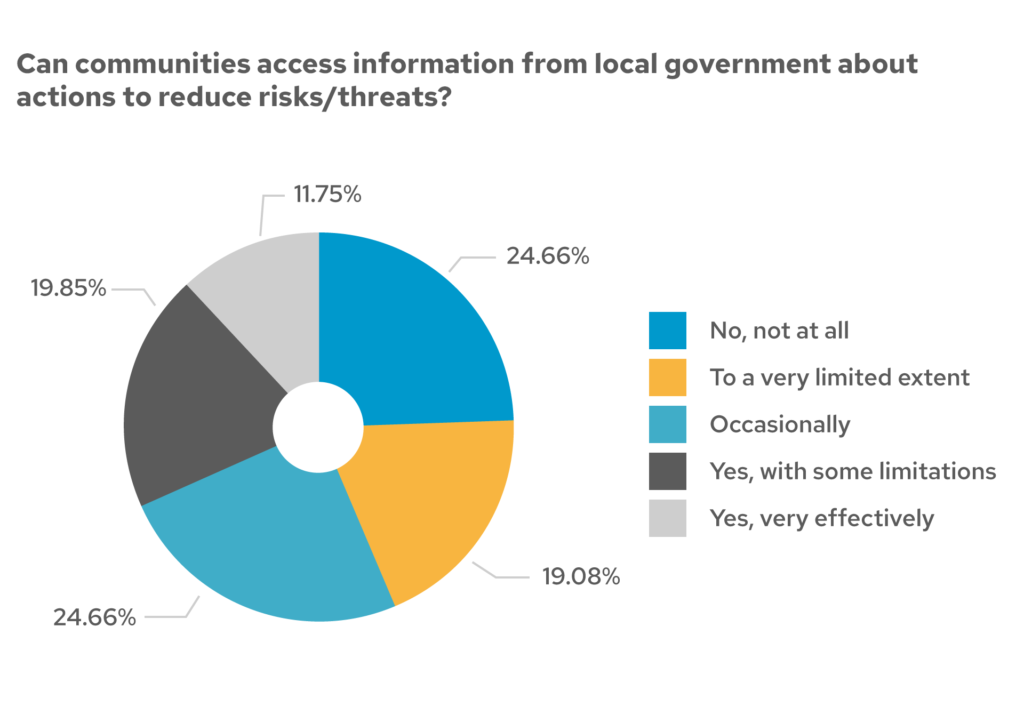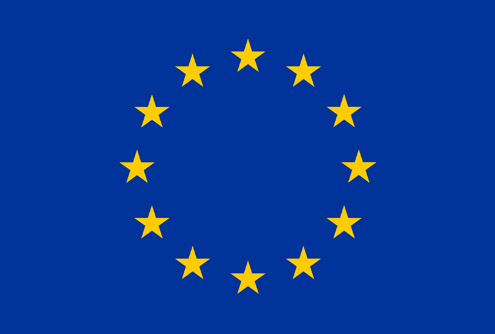VIEWS FROM THE FRONTLINE
Indonesia
We’re working with 21 communities in Indonesia to ensure that development is informed by the perspectives of people most at risk.
As part of our global Views from the Frontline programme we have surveyed community members, civil society organisations and government representatives across the country. Here we present our key findings, conclusions, activities and impact.
Random household surveys
Civil society surveys
Local government surveys
Key findings and conclusions at the national level
- The threat of hydro-meteorological hazards such as landslides, floods, typhoon and drought is increasing
- Collaboration between communities, civil society organisations and government needs to improve to identify the priority actions that need to be taken for risk reduction at the local level
- There is a need for civil society organisations to facilitate coherence between disaster risk reduction, climate change adaptation and poverty alleviation plans and activities at the local level

Surveys undertaken in Indonesia
Our Views from the Frontline surveys in Indonesia were undertaken in 2019.
Who was surveyed?
We surveyed 1,613 random households, 192 civil society organisations, 211 local government representatives, and undertook 106 community consultations.
Risk locations prioritised
We prioritised four risk areas:
- Yogyakarta Province
- West Java Province
- Maluku Province
- East Nusa Tenggara Province
Communities surveyed
We surveyed people from 21 communities: Sampang – Gunungkidul, Kedundang – Kulon Progo, Wukirsari – Bantul, Dlingo – Bantul, Jambudipa – West Bandung, Pagerwangi – West Bandung, Ciumbuleuit – Bandung, Taman Sari – Bandung, Leahari – Ambon, Hative Besar – Ambon, Hukurila – Ambon, Wajur – West Manggarai, Pangga – West Manggarai, Oekiu – Kupang, Oelbiteno – Kupang, Bu Watuweti – Sikka, Wolorega – Sikka, Korobhera – Sikka, Gera – Sikka, Done – Sikka, Kolisia B – Sikka.
“Floods occur every year causing erosion so that the land for agriculture is getting smaller in Bitunggawa. Planting plants is an effort made by residents to reduce the impact of erosion. The other is by building a gabion across the river but lack of funding still becomes a problem.”
Community respondent, East Nusa Tenggara Province, Indonesia
Our impact
Activities undertaken in response to community-level findings and conclusions
- Conducted a workshop and training for establishing an emergency taskforce at the village level, including simulation for preparing against any kind of disaster
- Training of school management, community members and government departments on disaster preparedness and ecosystem-based disaster risk reduction
- The establishment of a climate change team, known as KEMASPROKLIM
- Reforestation activities and tree plantation to mitigate risks due to floods and landslides
- Installation of evacuation signboards with village disaster management plans for safe evacuation
Impact of activities
- Early education teachers and pupils now have knowledge about threats and disasters; teachers have improved knowledge and skills on standard procedures for handling pupils when there is a risk of a disaster
- The community has a better understanding of the potential threat of disasters in their environment and the roles of community leaders in disaster risk reduction
- Disaster preparedness is now considered during community planning forum at the village level
Our project partners in Indonesia
Our Views from the Frontline programme is implemented by GNDR member organisations and partners in the country.
National coordinating organisation
- YAKKUM Emergency Unit
Partner organisations
- Perkumpulan
- SP Kinasih
- IPPMI DPD DIY
- Resilience Development Initiative
- Yayasan Walang Perempuan
- Yayasan Mariamoe Peduli
- Care International
- Caritas Keuskupan Maumere
View all data from Indonesia
You can view all our Views from the Frontline survey data using our data dashboard. You can also learn more about our methodology for selecting at-risk areas and survey respondents.
Project funded by
European Union

Our Views from the Frontline project is funded by the European Union (EU). Content related to this project on our website was made possible by the support of the EU. All content is the sole responsibility of GNDR and does not necessarily reflect the views of the EU.
View their websitePhoto credit
Photo by Devi Puspita Amartha Yahya on Unsplash.